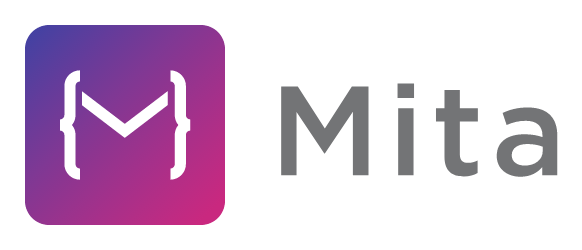Eclipse Mita is a new programming language for the embedded IoT. It targets developers who are new to embedded software development, specifically those who come from a cloud background. As developer Mita feels like a modern programming language (in the vein of TypeScript), but translates to C code which compiles to native code running directly on the embedded hardware. Combining declarative confiuration, powerful language features with code generation enables projects to scale their deployment over quantity - from the first prototype to shipping thousands of devices.
At the moment Mita is meant to be integrated into the development environments of device vendors. For example, the Bosch Cross Domain Development Kit (XDK110) ships Mita in its workbench under the name of XDK LIVE.
To get an impression of how Mita looks like, check out a short quick demo, or a talk from the Eclipse IoT Day 2018 in Grenoble.
Please take a look at the Mita documentation which provides examples, a getting started guide and a language reference.
In case you find a bug or have a feature request, please feel free to file an issue here on GitHub. If the issue already exists, you can also up-vote it. When creating a new issue, you can set labels for easier categorization like bug, enhancement etc. Priority labels are usually set by the project leads.
There are two ways you can extend Mita:
- Provide or extend a Mita platform: to run Mita on a particular device, we need a
platformwhich describes this device. For details of how to build such a platform, check out platform integrator guide (TBD). - Extend the core language itself: Mita is a programming language in its infancy. If you want to help build it, please find and file bug reports, or better yet provide a PR to fix it.
- Download the the Oomph Eclipse Installer
- Execute the installer
- Expand the menu on the upper right corner and select Advanced Mode
- Select Eclipse IDE for Eclipse Comitters on the Product page and click on Next
- Add the Mita Repository via the green "+" symbol. As catalog select Github Projects and as Resource URIs paste the following link: https://raw.githubusercontent.com/eclipse/mita/master/mita.setup
- Select the new Mita project, which will appear in Github Projects -> -> Mita and continue by clicking on Next.
- Choose a Installation folder name like "mita-master", which should be set by default and click on Next.
- The setup is done. Click on Finish and the installation will be executed.
- After this, a new Eclipse will be started. With the initial execution some Setup Tasks need to be executed. You can see the progress by clicking on the double arrow symbol on the bottom right. After finishing the Setup Tasks your environment is ready to use and should contain no errors.
Fixing a bug or introducing a new feature usually comes with writing a unit test to ensure that the new functionality will be still working in future. There are currently two test suites, one for testing code generators, and one for language specific tests:
- Code Generator Tests: org.eclipse.mita.program.generator.tests.AllTests
- Language (Xpect) Tests: org.eclipse.mita.program.tests.AllTests
Both test suites can be run from within your Eclipse workspace via right-click -> Run As -> JUnit Plugin Tests
In order to create a pull request you need a GitHug account as well as an Eclipse account.
- Create your own fork of this repository.
- Switch your git remote origin to reference your fork. You can do this in Eclipse: In the properties of the git repository just change the value of remote origin url.
- Sign off your commits using the same email address you are using for your Eclipse account.
- Push the branch into your fork repository
- Create a pull request here on GitHub by selecting your branch
Come and find us in our Mattermost channel at eclipse.org or check out the Eclipse Mita project home page for details regarding our mailing list.
